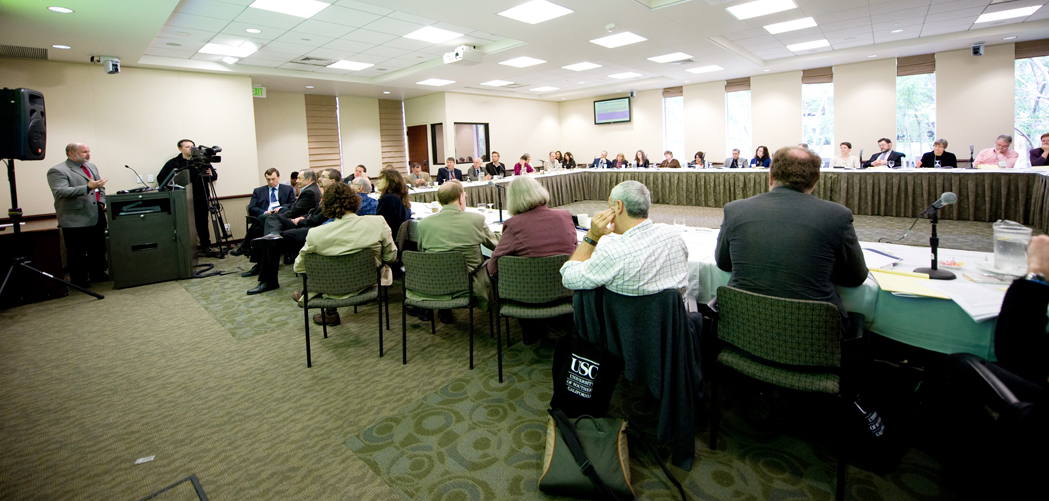2014 International Conference Roundtable Spotlight: Digital Pedagogy, Education, Human Rights and Violence Studies

A different panel or roundtable at USC Shoah Foundation’s upcoming international conference, Memory, Media and Technology: Exploring the Trajectories of Schindler’s List, will be profiled each week.
Four of the conference’s educators will discuss how human rights and violence can be taught using digital technology and other innovative methods at the “Digital Pedagogy, Education, Human Rights and Violence Studies” roundtable, moderated by USC Shoah Foundation’s director of education, Kori Street.
Mohammed Dajani was USC Shoah Foundation’s 2014 Yom Hashoah Scholar-in-Residence and is the founder of the Wasatia movement of moderate Islam. He has written extensively on Arab culture and politics, including an International Herald Tribune op-ed he co-authored with Washington Institute executive director Robert Satloff titled Why Palestinians Should Learn About the Holocaust.
Earlier this year, Dajani made headlines when Palestinian and Israeli media reported on the trip to Poland he took with 30 Palestinian students, in which he brought the students to Auschwitz and other concentration camps to learn about the Holocaust. Palestinian media attacked him, accusing him of attempting to brainwash his students or turn them into Zionists, and he was fired by his union.
Henry Jenkins is the Provost’s Professor of Communication, Journalism, Cinematic Arts, and Education at the University of Southern California. He will share the research from his forthcoming book, By Any Media Necessary: Mapping Youth and Participatory Politics, which documents many groups that are involved in contemporary struggles over human rights and social justice – American Muslims, undocumented youth (“DREAMers”), and even fan clubs of popular young adult fiction – to inspire youth participation in human rights struggles around the world.
At Central European University (CEU), Andrea Peto is co-teaching a seminar course called Gendered Memory of the Holocaust, based on the Visual History Archive and IWitness. She developed the course as a USC Shoah Foundation Teaching Fellow in summer 2013. Students watch testimony in the VHA and create their own videos in IWitness on topics relating to gender and memory construction of the Holocaust. The course is partnered with another class of students at Smith College in Massachusetts. Several class periods are conducted via video conference, so the students at CEU and Smith can interact and hold discussions together.
Finally, Ethel Brooks is an associate professor in the Department of Women's and Gender Studies and Sociology at Rutgers University. Her book, Unraveling the Garment Industry: Transnational Organizing and Women's Work, received the award for Outstanding Book for 2010 from the Society for the Study of Social Problems. She is currently working on two book projects focusing on political economy and cultural production and the increasing violence against Romani (Gypsy) citizens worldwide.
Like this article? Get our e-newsletter.
Be the first to learn about new articles and personal stories like the one you've just read.